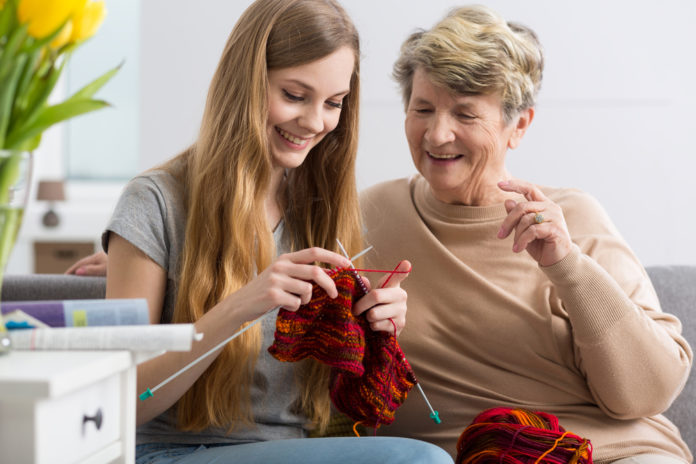Struggling to know if your elderly parents need help in the home? It can seem difficult to spot signs your parent needs a nursing home. Understanding key warning signs can enable you to find the right kind of help for aging parents.
Read on for information on how to know when your elderly parents need help, including the top 15 signs to look out for.
How to Know When Your Elderly Parents Need Help
It can be tricky to know whether your elderly family members would benefit from assisted living or home care. Sometimes, older adults can be hesitant to ask for help on their own. For these reasons, it is important to know the warning signs of when seniors need help.
Between senior living centers, nursing homes, and at-home health care, there are many different levels of care available. Even from a long distance, adult children can be confident in caring for an aging parent. An important part of maintaining quality of life is knowing when advanced care may be appropriate.
Signs Your Parent Needs A Nursing Home Or Help In The Home
Moving to a care facility can be disruptive, so it is a decision needing careful deliberation. However, in many cases, moving a loved one to a care facility or employing a part- or full-time caregiver at their home can actually increase their quality of life.
Either way, evaluating what the safest and most supportive environment is for your loved one is important. Here are 15 signs that help beyond what you can offer may be needed.
1. Lack of Personal Hygiene
If your parent or a loved one is struggling, they may forget to do simple tasks. A lack of personal hygiene may be a sign that they have stopped taking proper care of themselves.
2. Distance from Activities
Withdrawal from social circles can be a red flag for the elderly. An aging parent may distance themselves or begin to act uncomfortable in social situations.
A support group may be able to help provide some socialization while they adjust to accepting help with daily tasks.
3. Medication Neglect
Everyone has accidentally missed a dose of medication at some point. However, an older person routinely forgetting to take medication can be a call for help.
If your mom or dad is hesitant to involve full-time senior care, a part-time home health aide may be able to assist.
4. Safety Concerns
A senior whose health is failing may be more than just “forgetful”. For example, leaving a burning stove or oven unattended can create a serious situation.
Behaving unsafely can create risk for your loved one and others, making it an extremely important warning sign to address.
5. Condition of the Home
As with personal hygiene, a home lacking in cleanliness may signal the need for additional help. Tasks like paying bills may start going undone and create problems for the home and homeowner.
An untidy living space can also be a sign of Alzheimer’s disease, and definitely warrants speaking with a healthcare professional.
6. Health Decline
Refusing to receive treatment for an illness counts as a cause for concern. Some seniors are not neglectful but are just experiencing a state of decline. A caregiver or other medical professional may be able to help you keep track of a loved one’s appointments.
Also consider asking your elderly friend or family member to give you legal permission to receive test results, schedule appointments, etc. If you plan on attending doctor’s appointments with them, this can help you manage care in between visits as well.
7. Weight Loss or Dehydration
Forgetting to eat may cause sudden weight loss, and forgetting to drink can cause dehydration. Both can lead to serious medical conditions like malnutrition.
Options like Silver Cuisine meal delivery can help mediate mealtime confusion and offer simple solutions for meeting nutrient needs.
8. Mood or Decision-Making Changes
Every once in a while, making a bad decision is not cause for alarm. However, routinely making bad decisions or lacking judgment can be a sign of more serious issues. Changes in personality or mood are worth checking out.
9. Hoarding
Holding on to cherished possessions is one thing, but lingering objects that have no use can be a cause for concern. Elderly people may start to hoard because of serious conditions like dementia, OCD, depression, or trauma.
Hoarding is often a coping mechanism that arises when they are confused about the meaning of the items or try to infuse an inanimate object with more meaning than it is worth.
10. Routine Confusion
Especially surrounding regular tasks or standing appointments, confusion can be a clear sign that your senior needs assistance. Confusion about a time (i.e not knowing what year it is), place, or people may signal cognitive decline.
In this case, it is best to seek the help of a medical professional.
11. Asking the Same Questions
Asking the same questions time and time again may be a reason to worry. More than a sign of forgetfulness, it can mean your loved one isn’t holding on to important information. This can lead to safety concerns, too.
12. Getting Lost or Losing Things Often
Finding items (or your elderly friend) in odd places may cause a chuckle at the moment, but is actually worrying. Older adults with impaired memory often misplace things and can get lost in places they don’t recognize.
If this is happening, it may be time to employ a caregiver or consider a senior living facility to preserve your loved one’s freedom (within a safe environment).
13. Trouble Following Instructions
If following directions or a recipe feels like too much, it may be time to seek help. Instructions are there for a reason, and often lend tips for both safety and guidance of the participant.
Investigating other forms of instructions (i.e. how-to videos) may help, or your loved one may need a more permanent solution, like a home health aide.
14. Forgetting Important Events
Lots of issues can lead up to missing an important event or appointment. Your loved one may have forgotten the event altogether, mixed up the starting time, or neglected to use mobility aids in order to make it there.
In any case, if your senior friend or family member is missing important events, it may be time to ask how you can help.
15. Trouble Finding the Right Words
Struggling to find the right words is common, but not being able to hold a conversation is concerning. It’s actually a symptom of Alzheimer’s, and it may signal that your loved one is struggling to care for themselves.
Alzheimer’s facilities and memory care centers are often prepared to support the elderly in cases like these.
In Summary On Warning Signs
The bottom line? If doubts arise about the ability of your loved one to take care of themselves, it’s probably worth looking into. You ultimately want your elderly friend or family member to be safe and taken care of, and recognizing the warning signs can help prevent a bad situation from happening.
References:
Aging in Place: Growing Older at Home. National Institute on Aging. Published May 2017. https://www.nia.nih.gov/health/aging-place-growing-older-home#place.
Memory, Forgetfulness, and Aging: What’s Normal and What’s Not? National Institute on Aging. Published October 2020. https://www.nia.nih.gov/health/memory-forgetfulness-and-aging-whats-normal-and-whats-not.
What Are the Signs That an Aging Parent Needs Help? National Institute on Aging. Published May 2017. https://www.nia.nih.gov/health/what-are-signs-aging-parent-needs-help.
When It’s Time to Leave Home. National Institute on Aging. Published May 2017. https://www.nia.nih.gov/health/when-its-time-leave-home.






